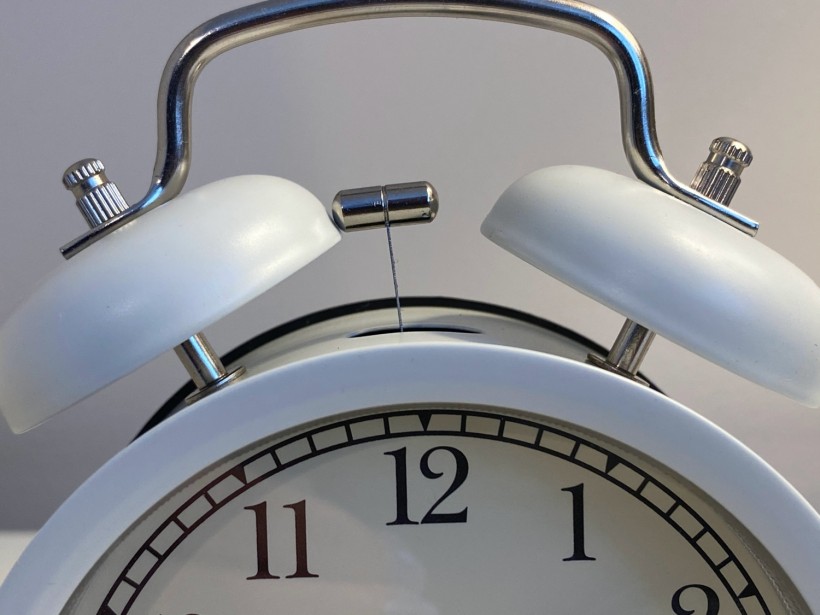Recent research challenges the notion that hitting the snooze button is detrimental, and it may enhance cognitive performance. Many individuals employ this habit, with a study of over 1,700 participants revealing that 69% use snooze or multiple alarms. The findings encourage a reconsideration of the effects of this common morning ritual.

Do You Hit the Snooze Button on Your Alarm? New Research Suggests It Might Help Improve Cognitive Performance in the Morning
Is Hitting the Snooze Bad?
The daily battle with the alarm clock is a common struggle: it starts beeping, signaling the need to get up, yet people often hit the snooze button. This pattern repeats, and soon they are in a cycle of snooze, sleep, and repeat. While it is not the most productive way to begin the day, breaking this habit seems challenging.
Each snooze session on an alarm clock typically lasts between 5 to 10 minutes, but these extra minutes of drifting in and out of sleep may have detrimental effects on our physical health.
Snoozing disrupts the REM sleep, a restorative sleep state, and the brief duration of a snooze is insufficient to return to this restorative sleep phase. Additionally, this disruption can trigger physical responses such as increased blood pressure and heartbeat.
Hitting the snooze button can also adversely impact mental state, adding stress as people begin their day in a battle with the alarm clock, ultimately leading to a sense of defeat. It's undoubtedly a challenging habit to break, although it remains incredibly tempting. One of the primary factors to address when trying to overcome this habit is ensuring to get adequate sleep.
READ ALSO: How To Sleep Better: Neuropsychologist Shares Tips on Snoozing Back After Waking up at 3 Am
Snoozing May Help Against Drowsiness
Although conventional wisdom has often discouraged the habit of hitting the snooze button on alarm clocks, a recent study published in the Journal of Sleep Research conducted by researchers from Stockholm University in Sweden and Monash University in Australia challenges this notion.
They delved into the snooze habits of 31 individuals under controlled laboratory conditions and discovered that an additional 30 minutes of snoozing either had no adverse impact on their cognitive abilities or even improved them when compared to those who rose abruptly without snoozing.
Tina Sundelin, a sleep scientist from Stockholm University, emphasized that these findings suggest there's no compelling reason to forsake the morning snooze ritual, especially if it falls within the 30-minute timeframe. It might benefit individuals who often grapple with morning drowsiness, helping them feel more alert upon waking.
The 30 minutes of snooze time consisted of three delay periods, each lasting 9 to 10 minutes, resulting in an average loss of just 6 minutes of sleep per night compared to continuous sleep.
Moreover, the researchers proposed that snoozing may enable a gentler wake-up from a lighter sleep cycle stage, as opposed to the abrupt awakening from deep sleep, potentially being less taxing on the body. Interestingly, there were no noticeable differences in mood levels, stress, morning sleepiness, or sleep architecture between those who snoozed and those who didn't.
A broader survey of 1,732 volunteers showed that 69% occasionally hit the snooze button or set multiple alarms, and these individuals were generally younger and evening-oriented, with an average snooze time of 22 minutes.
The study acknowledged the potential for snoozing to fragment sleep but underscored the benefits observed, emphasizing that the impact of snoozing appears to vary from person to person. The researchers concluded that a brief snooze period may assist in alleviating sleep inertia, particularly for late chronotypes and individuals experiencing morning drowsiness.
RELATED ARTICLE: Daytime Napping May Help Preserve Brain Health by Slowing Down Rate of Shrinkage As We Age
Check out more news and information on Sleep in Science Times.




![Earth's Quasi-Moon Kamo‘oalewa Could Originate From Lunar Surface Not Asteroid Belt [Study]](https://1721181113.rsc.cdn77.org/data/thumbs/full/53275/89/56/50/40/earths-quasi-moon-kamo-oalewa-could-originate-from-lunar-surface-not-asteroid-belt-study.png)









